On January 16 the European Parliament will debate adding the Islamic Revolutionary Guards Corps (IRGC) to the European Union’s terrorist list. Proscribing the IRGC as a terror organization by the European countries represents a robust political stance, serving multiple purposes: protecting human rights in Iran, preventing further terror attacks in Europe, and punishing the Revolutionary Guards for arming Russia and participation in war in Ukraine.
The IRGC is the premier and the largest terrorist organization in the world, created on May 5, 1979, by order of Ayatollah Rohullah Khomeini, the founding father of the Islamic Revolution. It was formed primarily for two specific goals: defending the regime and exporting the Islamic revolution to neighboring countries through terrorism. Over time, the IRGC, aided by its proxies, carried out dozens of terror attacks around the world against American and Israeli targets and took effective control of Iraq, Syria, Lebanon, and Yemen.
In 2007, the U.S. State Department designated the Quds Force (QF), the Revolutionary Guards’ foreign operations division, as a terrorist organization. However, until 12 years later in 2019, the US government was hesitant to designate the IRGC itself as a terror group. The long-time reluctance was caused by handwringing over the false argument that the IRGC is part of the Iranian state and is considered a branch of Iran’s armed forces. Despite these concerns, there is nothing about the behavior of the IRGC to indicate that it is comparable to the normal conventional army of a nation-state. As one scholar noted, “Similar to other Islamist militias such as Al-Qaeda and ISIS, radicalization and indoctrination are key for the Revolutionary Guards. The IRGC modus operandi -militancy, terrorism, hostage-taking, hijacking, and insurgency – shows it doesn’t behave like a nation-state’s conventional arms force but rather like terror groups.”
The Revolutionary Guards has also operated against dozens of targets in the European continent. Approximately half of the 124 lethal operations that the IRGC has carried out in foreign countries since 1979 occurred in Europe. For instance, on December 7, 1979, the IRGC agents conducted a terror operation in Paris and assassinated Shahriar Shafiq, a member of the House of Pahlavi. In 1980, the IRGC plotted to assassinate Shapour Bakhtiar, the last Prime Minister of Iran under the Pahlavi monarchy, in Paris. Though Bakhtiar survived, the assassination attempt resulted in the death of a French police officer and a civilian. Bakhtiar was assassinated in the second terror plot on August 6, 1991, in a joint operation by the IRGC and the Ministry of Intelligence Service of the Islamic Republic (MOIS).
On February 7, 1984, by the order from the IRGC, the Islamic Jihad Organization assassinated Arteshbod Gholam-Ali Oveissi, the chief commander of the Imperial Iranian Armed Forces under Mohammad Reza Pahlavi, and his brother Gholam Hossein, in Paris.
On July 13, 1989, Mohammad Sahraroudi, the head of the IRGC intelligence organization (Sazman-e Ettellaate Sepah), carried out a terror operation in Vienna and assassinated Abdul Rahman Ghassemlou, the Secretary-General of the Democratic Party of Iranian Kurdistan (KDPI) and his aids Abdullah Ghaderi Azar and Fadhil Rassoul.
On April 24, 1990, Kazem Rajavi, a university professor known for his work as a human rights advocate, was killed in Geneva. On April 18, 1991, the IRGC assassinated Abdolrahman Boromand in Paris. On August 3, 1992, the German-Iranian Fereydoun Farrokhzad was murdered in his apartment in Bonn. In another joint operation, the IRGC and MOIS assassinated Sadegh Sharafkandi (Ghassemlou’s successor) on September 17, 1992, in the Mykonos Greek restaurant in Berlin, Germany. On May 27, 1996, Reza Mazloman was assassinated in Paris, and Bizhan Fazeli was killed in London in 1986.
The perceived successes of such terrorist attacks, which had literally no cost for the Revolutionary Guards, encouraged the IRGC to continue its terror operations in Europe even after the “Joint Comprehensive Plan of Action” nuclear agreement was signed with Iran in 2015. Between 2015 to 2017, Revolutionary Guards agents killed at least three dissidents in Western Europe, including an Iranian Arab activist who was gunned down in front of his home in the Hague. In 2018, the IRGC operatives plotted terrorist attacks in Albania, including targeting MEK event to silence dissidents. In June 2018, the IRGC plotted to blow up a meeting of an estimated 100,000 Iranians and hundreds of international dignitaries in Paris. The two Iranian diplomats who were behind the plot were IRGC affiliates. According to a British Member of Parliament who attended the rally, “had the plot succeeded, it would have been the deadliest terror operation ever carried out in Europe.”
In October 2018, the Guards had tried to carry out a plot in Denmark to assassinate an exiled leader of the Arab Struggle Movement for the Liberation of Ahvaz (ASMLA). The IRGC was involved in another assassination plot in the Netherlands in 2018. In 2020, Mohammed Mehdi Mozayyani, a member of the IRGC, attempted to carry out lethal operations in the UK. Mozayyani, had also conspired to conduct operations in Albania in 2018 and 2019.
More recently, the IRGC has stepped up its efforts to kidnap and kill European activists and journalists, dissidents who have fled the country, media organizations critical of the regime; and Jewish civilians or those with alleged links to Israel. In November 2022, the British MI5 (domestic security agency) uncovered at least 10 “potential threats” from the IRGC to kidnap or kill British nationals. The IRGC Intelligence Organization has targeted employees at BBC Persian and Iran International TV channels based in London, labeling them “instruments of the West and peddlers of anti-regime sentiment” and “terrorist news channels.” More recently, yesterday, Hossein Salami, commander of the IRGC, threatened Charlie Hebdo staff with assassination for their alleged “insulting Islamic Republic clerics.”
With Putin’s invasion of Ukraine, a European country, Revolutionary Guards has expanded its offensive against the West by getting involved in the war. The IRGC provides the Russian army with military advisors, kamikaze drones, and short-range ballistic missiles (Fateh-110 and Zulfiqar) to destroy Ukrainian cities and civilian infrastructure. The Shahed-136 drone used by Russia damaged “40 percent of Ukraine’s electricity infrastructure.” Reportedly, the IRGC is going to supply Russia with more military advisors, drones, and ballistic missiles to use in its unjust war against Ukrainians.
The IRGC also plays a key role in the regime’s brutal campaign against Iranian democratic movements. It played a significant role in crackdowns on Iran protesters in the past (1999, 2009, 2017, and 2019) and during the current round of protests. During the 1999 student demonstrations, the IRGC forces and its Basij militia killed several students, injured hundreds, kidnapped dozens, and arrested more than a thousand. In 2009, the IRGC and the Basij killed over 200 protesters (unofficial reports indicate 700 protesters), paralyzed 830 protesters who will never be able to walk again due to spinal cord injuries, and imprisoned, tortured, raped, and kidnapped thousands. In 2019, the IRGC forces killed 1,500 protesters, including 17 teenagers and 400 women, within two weeks of unrest. During the current round of nationwide protesters, which started in September 2022 over the death of Mahsa Amini, the 22-year-old Kurdish girl who was murdered by the morality police, the IRGC and Basij forces killed approximately 600 protesters, of whom 65 were children, and dozens were girls. The Guards imprisoned over 19,000 protesters, forcing the Revolutionary Court judges to issue death sentences for the detainees.
The EU has imposed financial sanctions on the Islamic Republic and the IRGC to abandon terrorism, but the financial pressure has not been sufficiently powerful to induce them to change course. Only adding the Revolutionary Guards to the EU terror list can increase pressure on the regime to abandon terrorism or, at the very least, impede their ability to continue their bad behavior. The FTO designation would also restrict financial resources to the IRGC and restrict their freedom of movement by making it harder for Revolutionary Guards agents to travel Europe.
The IRGC’s actions in Ukraine should also give European countries another strong reason for a more robust policy to counter this terrorist organization. In the absence of strong action, the IRGC will continue to undertake aggression without cost.
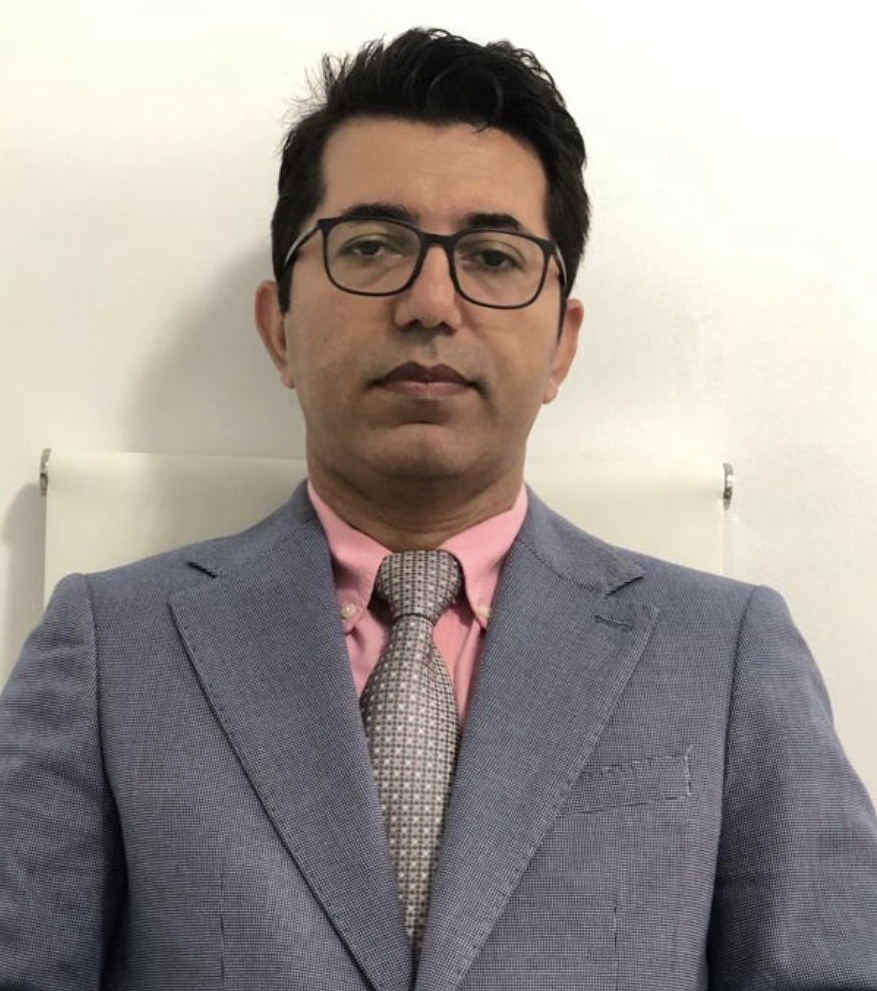
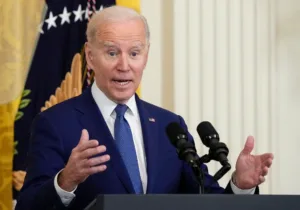
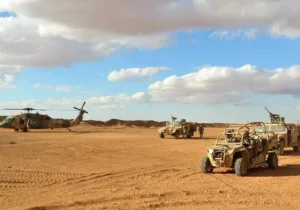
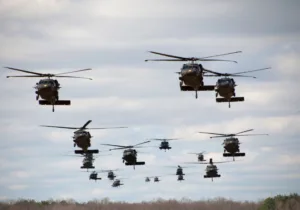
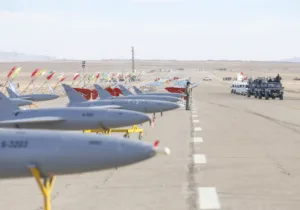
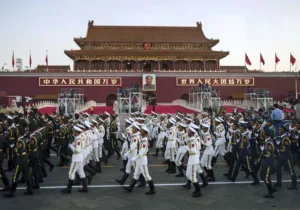

 Live in the DC area? Sign-up for Providence's in-person events list!
Live in the DC area? Sign-up for Providence's in-person events list!